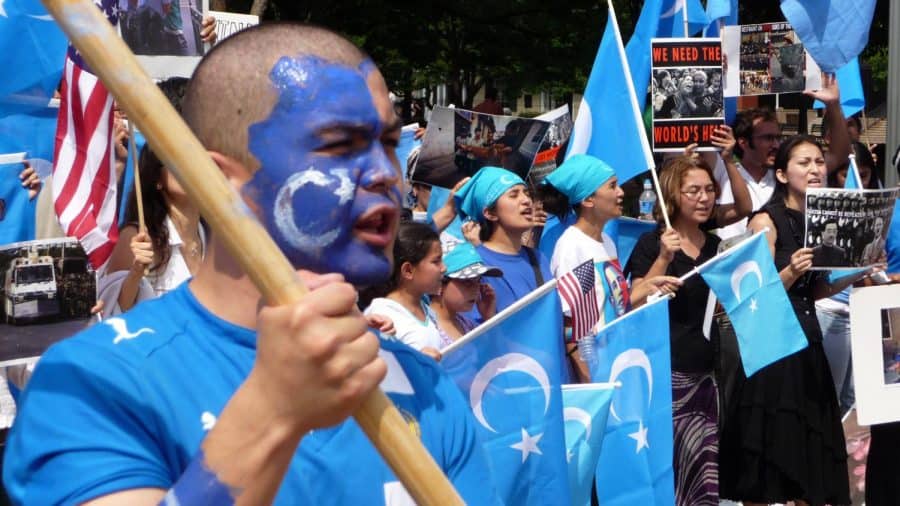Opinion | Why the Uyghurs’ persecution should matter to you
The Chinese government is systematically hurting these people. And American consumers may be more complicit than they realize.
February 24, 2021
At this point, it is undeniable that the Chinese government’s persecution against the Uyghurs, a Turkic ethnic group located throughout Central and East Asia, is real. No amount of propaganda can refute it.
Uyghurs located within Chinese borders find themselves under threat from the government, being rounded up into forced assimilation or reeducation camps. The official pretext used by the Chinese Communist Party (CCP) for these arrests are counterterrorism fears, but such a threat is likely inflated. There have been terrorist attacks, and there is a small Uyghur independence movement, but these are likely inflamed by the CCP’s continuous mistreatment of this ethnic minority throughout its history of governance.
The CCP’s rationale for this persecution ultimately boils down to two things. The first is the fundamental desire of a totalitarian regime to control nearly every aspect of its citizens’ lives, especially those that don’t conform to the ideal citizen. The second is economic. The Xinjiang region has large oil deposits and other minerals, and it is also the largest cotton exporter in the world. Xinjiang also serves as an important launching point for China’s “One Belt, One Road” initiative, an international economic policy aimed at expanding China’s economic reach throughout Asia, Europe and Africa.
The nature of a totalitarian regime like the CCP makes it difficult for the truth about this situation to come to light, but many reporters, witnesses and satellite images have uncovered mounting evidence of atrocities committed against the Uyghurs.
The Falkirk Center lists these atrocities to include “systematic rape, torture, forced abortion, sterilization, forced labor, and brainwashing by Chinese government officials.” The level of persecution that the Uyghur’s face is on the cusp of full-blown genocide if it isn’t already, and many scholars, activities and political leaders are already making that charge.
But what does this have to do with you? Someone thousands of miles away, that has maybe never even heard of or met a Uyghur, that has more pressing issues at home or cares little about international affairs.
Well, the global economy has its perks, but it also has negative side-effects: many corporations whose products we enjoy and consume are being identified as having links to the forced labor of Uyghurs.
The spectrum is wide and across several industries, particularly textiles, electronics and even automotives. A report by the Australian Strategic Policy Institute lists 82 corporations benefiting from this labor. Some of these companies include Nike, Adidas, Gap, Apple, Huawei, Samsung and even General Motors and Mercedes.
The cheap and mass-produced goods we enjoy come from companies that benefit from the exploitation, humiliation and possible genocide of real people. The CCP has decided that Uyghurs are a subpar group of people. We shouldn’t allow these many American and multinational companies to fall in line.
I don’t expect this struggle to change overnight, and there is little the individual can do for such a multifaceted issue. But the first step in addressing an issue or challenge is to call it out, to acknowledge its existence, to name it. At the moment, more than 1 million Uyghurs are believed to be imprisoned in China. This barbaric treatment is a level of persecution perhaps not seen since the Holocaust.
The Polish diplomat Jan Karski tried to warn the west of the horrors of the Warsaw Ghetto and what would later be known as the Holocaust as a whole in the early days of World War II, but his warning fell on deaf ears. How much of a wake-up call do we need now in the 21st century to face such an eerily similar crisis? For anyone with a sense of morality, this crisis cannot go unchallenged.










